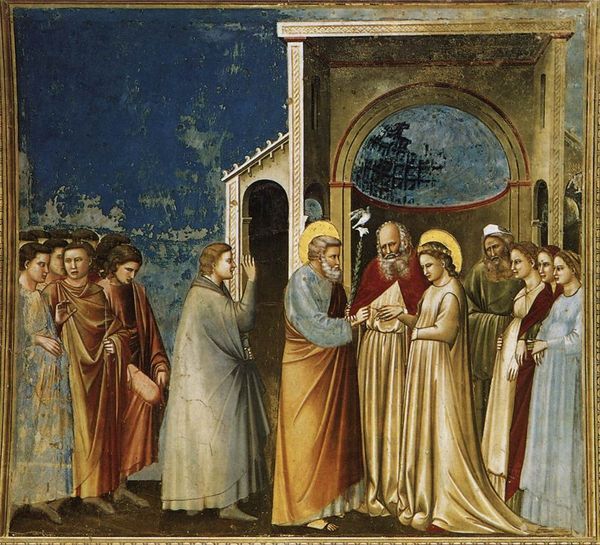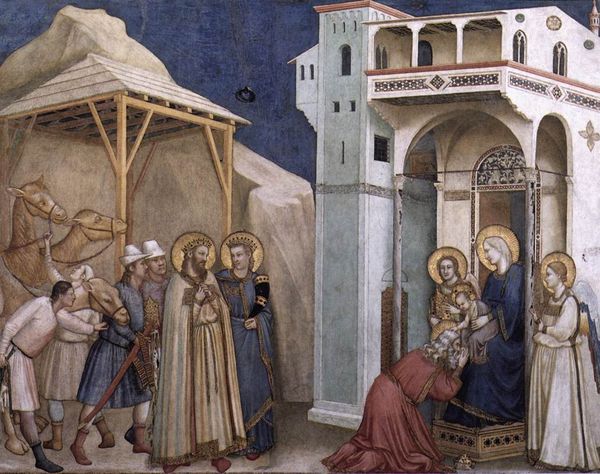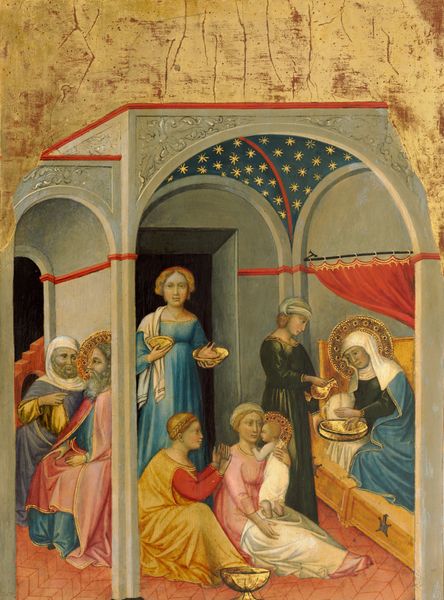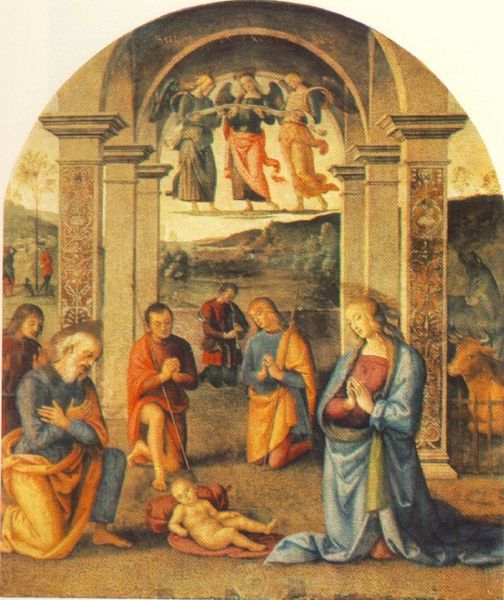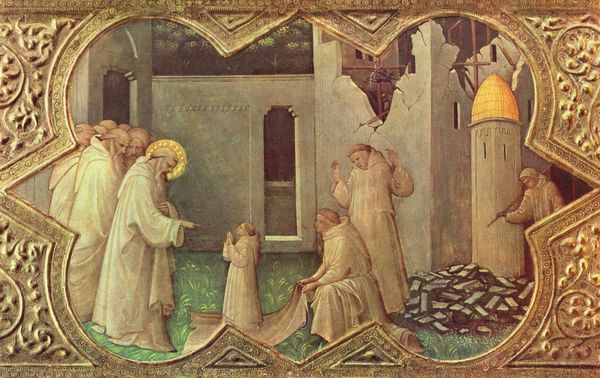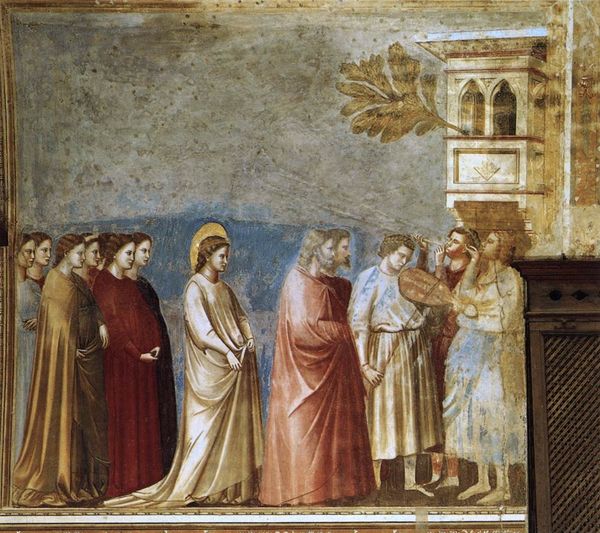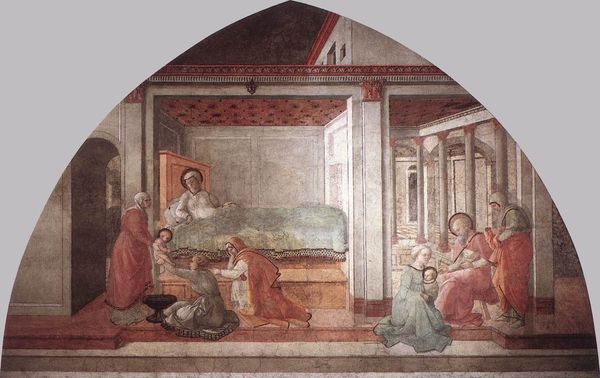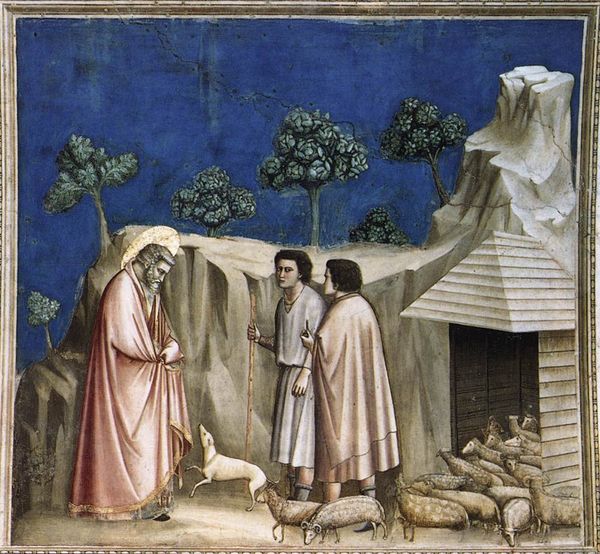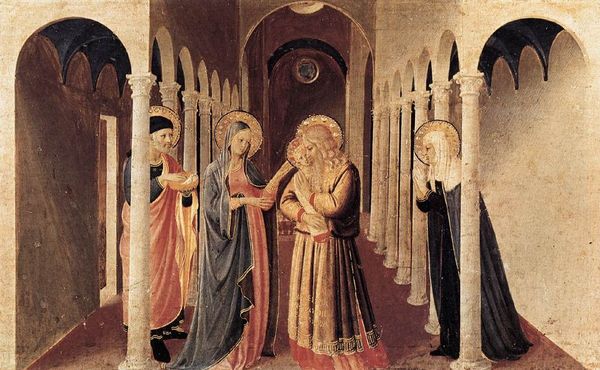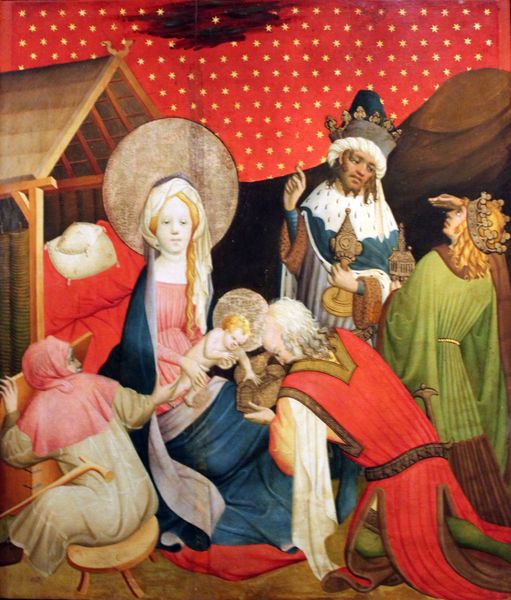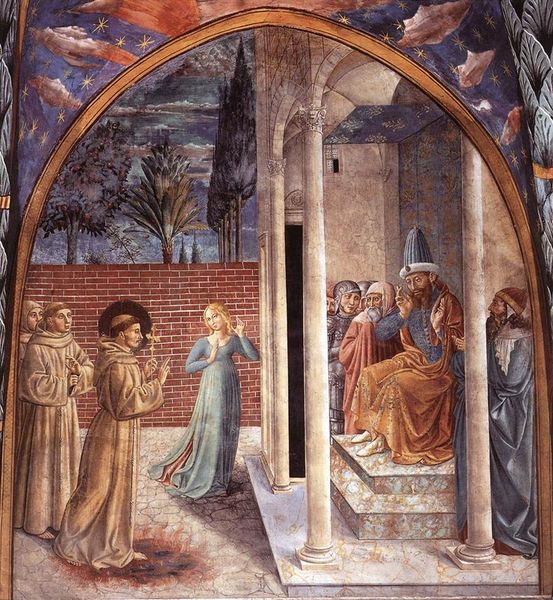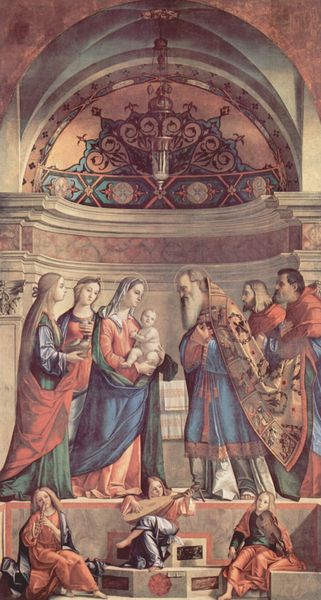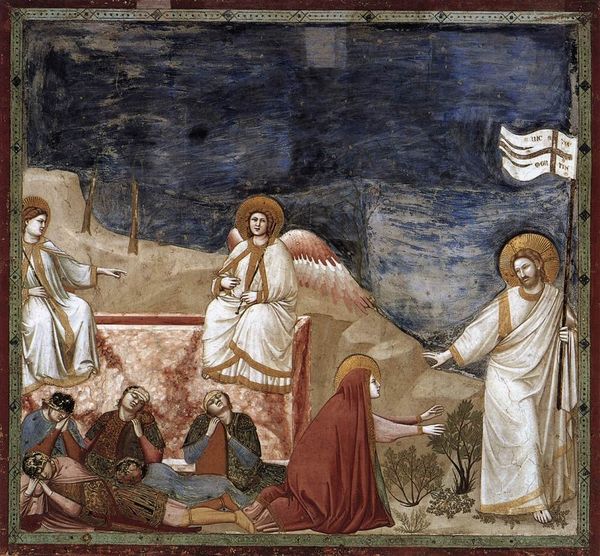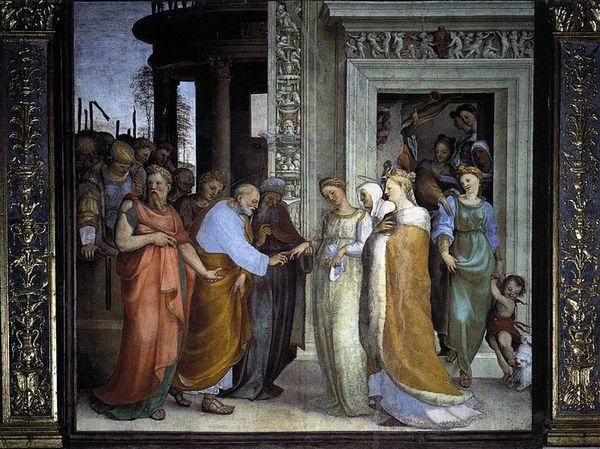
painting, fresco
#
portrait
#
medieval
#
narrative-art
#
painting
#
holy-places
#
figuration
#
fresco
#
handmade artwork painting
#
oil painting
#
underpainting
#
christianity
#
mythology
#
painting painterly
#
history-painting
#
italian-renaissance
#
early-renaissance
#
virgin-mary
#
watercolor
#
christ
Copyright: Public domain
Giotto painted this fresco, The Birth of the Virgin, in the early 14th century, as part of his commission at the Scrovegni Chapel in Padua. Commissioned by a wealthy family, the chapel itself served as a potent symbol of social aspiration and piety, intended to atone for the family's financial sins. Here, the scene is set in a domestic interior, a recognizable space made extraordinary by the divine event. Note how Giotto blends the sacred with the everyday, bringing religious narratives into a relatable human context. This reflects a broader shift in the 14th century towards a more humanistic approach to religious art, emphasizing emotional resonance and personal connection. Art historians often consult account books, legal documents, and even sermons to understand the precise cultural and historical context surrounding works like this. Such research reveals the complex interplay of artistic expression, religious belief, and social ambition in shaping the art of the past. Ultimately, the chapel underscores how art is deeply embedded in the social fabric of its time.
Comments
No comments
Be the first to comment and join the conversation on the ultimate creative platform.
